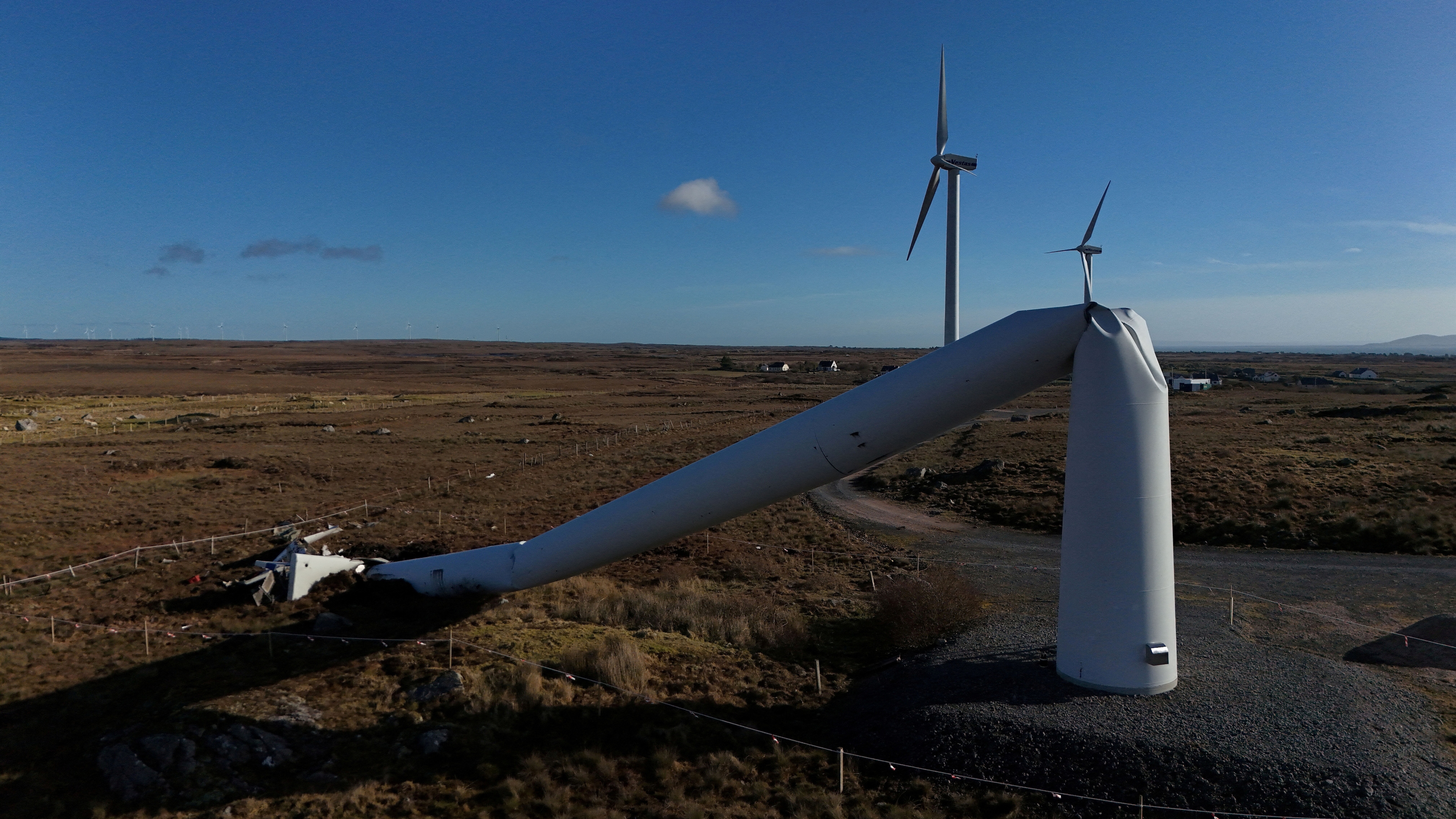False autumn and one US city's renewable plans: 5 climate change stories to read this week

False autumn, Chicago to run on renewable energy, wonky vegetables - here are the latest stories on climate change.
Image: Unsplash/Erik Witsoe
Stay up to date:
Climate Crisis
Listen to the article
- This weekly roundup brings you some key climate change stories from the past seven days.
- Top stories this week: False autumn; Chicago to run on 100% renewable energy; Wonky vegetables; 5 cities tackling air pollution: Floating solar farms.
1. Many trees are losing their leaves: what is 'false autumn'?
In the UK a so-called 'false autumn' is underway as nature goes into survival mode in an effort to cope with heatwaves and drought.
The lack of rain has put trees under stress. Their response? Shedding their leaves as much as three months earlier than normal to save water and energy.
Signs of a false autumn could also be seen in other parts of the world also experiencing severe and widespread droughts. For example, in Europe, droughts have led to crop failures and wildfires.
Read more about the 'false autumn' phenomenon.
2. Chicago will soon run only on renewable energy
Chicago has announced plans to run all its buildings and other operations with 100% renewable electricity by 2026.
The move will include its two airports, its central library, and main water purification plant.
The move is expected to reduce the city’s carbon footprint by more than 290,000 metric tons each year. This is equivalent to the emissions of 62,000 passenger vehicles, according to estimates from the US Environmental Protection Agency.

Learn more about Chicago's plans to go renewable.
3. Vegetables are changing shape because of climate change
Heatwaves and droughts have had a big impact on farmland and crops this year - including causing some oddly shaped crops.
Crops are coming out of the ground more stunted or misshapen than usual because so much land has been hit by extremely dry conditions.
Farmers are encouraging shoppers to embrace this wonky produce, rather than reject it and add to a global food waste problem.
This year’s crop of wonky vegetables is unlikely to be a one-off. Farmers face a future of tough growing conditions caused by global warming.
Accept our marketing cookies to access this content.
These cookies are currently disabled in your browser.
Discover more about vegetables changing shape due to climate change.
4. These 5 cities are tackling the air pollution crisis
This week saw International Day of Clean Air for Blue Skies take place.
Air pollution remains a major global issue and is responsible for an estimated 7 million premature deaths every year. Approximately nine in 10 people around the world breathe unclean air, which increases the risk of numerous diseases.
But these cities are fighting back.
Read more about urban efforts to combat air pollution.
What's the World Economic Forum doing to tackle air pollution?
5. Can floating solar farms help us reach net zero?
Floating solar farms are being built in growing numbers around the world.
Space on land can be crowded and expensive – and using it to build solar farms can 'create tension with farmers, conservationists, and other groups', according to NASA.
Floating solar farms are seen as a potential solution. Formally known as floating photovoltaic systems, or floatovoltaics for short, they are solar panels installed on the surface of bodies of water including lakes and reservoirs.
Countries around the world, like India, South Korea, and Portugal, are all exploring floating solar farm projects.
Find out more about the spread of floating solar farms around the world.
Don't miss any update on this topic
Create a free account and access your personalized content collection with our latest publications and analyses.
License and Republishing
World Economic Forum articles may be republished in accordance with the Creative Commons Attribution-NonCommercial-NoDerivatives 4.0 International Public License, and in accordance with our Terms of Use.
The views expressed in this article are those of the author alone and not the World Economic Forum.
Related topics:
Forum Stories newsletter
Bringing you weekly curated insights and analysis on the global issues that matter.
More on Climate ActionSee all
Tom Crowfoot
August 12, 2025
Luis Antonio Ramirez Garcia
August 11, 2025
Michael Fröbel and Stanislas Hillen
August 8, 2025
Elizabeth Henderson and Daniel Murphy
August 8, 2025






